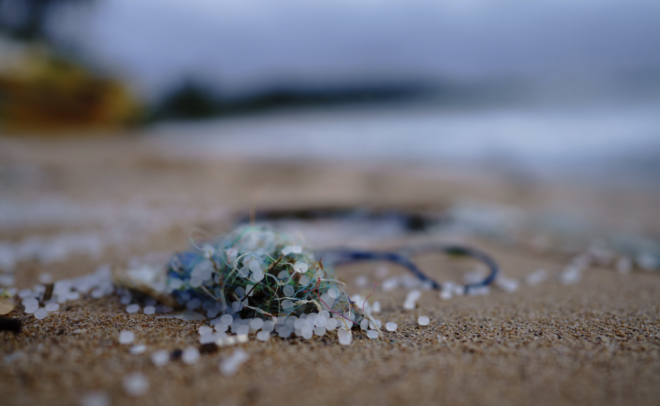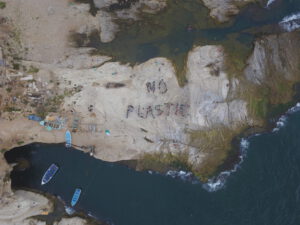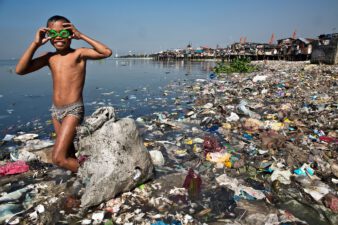 It started with the plastic Pacific gyre some years ago in the sea. David de Rothschild set sail with a plastic boat, The Plastiki, to document the extent of it all and we interviewed him about it, concerned obviously.
It started with the plastic Pacific gyre some years ago in the sea. David de Rothschild set sail with a plastic boat, The Plastiki, to document the extent of it all and we interviewed him about it, concerned obviously.
Fast forward and we have Dutchman Boyan Slat trying to clean it all up, and researchers taking stock on how many single flipflops wind up on the shores of paradise on the Seychelles.

But plastics – why should you care if you don’t care about turtles choking? It turns out microplastics are terribly bad for you if you consume them and can amplify the effects of other toxins in the environment by clinging to them, found a recent study out of Israel.
And the amount of microplastics being found in our bodies from drinking out of plastic bottles to eating fish that eat plastic, is frightening. One study has found an alarming amount of microplastics in the poop of babies. How it gets there and what will happen later in life is anyone’s guess – or your new research mission.
Some of the microplastics were found in meconium, the first stool from a newborn, meaning they came through the mother. Some were found later and it is guessed that it is getting to the babies through teethers, water bottles, and toys. BPA-free? Probably not enough. Read below for more details on the pilot study.
What are microplastics?
Microplastics — tiny plastic pieces less than 5 mm in size — are everywhere, from indoor dust to food to bottled water. So it’s not surprising that scientists have detected these particles in the feces of people and pets. In a small pilot study, researchers reporting in Environmental Science & Technology Letters discovered that infants have higher amounts of one type of microplastic in their stool than adults. Health effects, if any, are uncertain.
Little is known about the magnitude of human exposure to microplastics or their health effects. Although microplastics were once thought to pass harmlessly through the gastrointestinal tract and exit the body, recent studies suggest that the tiniest pieces can cross cell membranes and enter the circulation system.

In cells and laboratory animals, microplastic exposure can cause cell death, inflammation and metabolic disorders. Kurunthachalam Kannan at the New York University School of Medicine and colleagues wanted to assess human exposure to two common microplastics — polyethylene terephthalate (PET) and polycarbonate (PC) — by measuring levels in infant and adult feces.
Microplasics in meconium?!?
The researchers used mass spectrometry to determine the concentrations of PET and PC microplastics in six infant and 10 adult feces samples collected from New York state, as well as in three samples of meconium (a newborn infant’s first stool).
All samples contained at least one type of microplastic. Although average levels of fecal PC microplastics were similar between adults and infants, infant stool contained, on average, more than 10 times higher PET concentrations than that of adults.

Plastic Soup draws an atlas of plastics and where they are accumulating around the world.
Infants could be exposed to higher levels of microplastics through their extensive use of products such as bottles, teethers and toys, the researchers say. However, they note that larger studies are needed to corroborate these findings.



